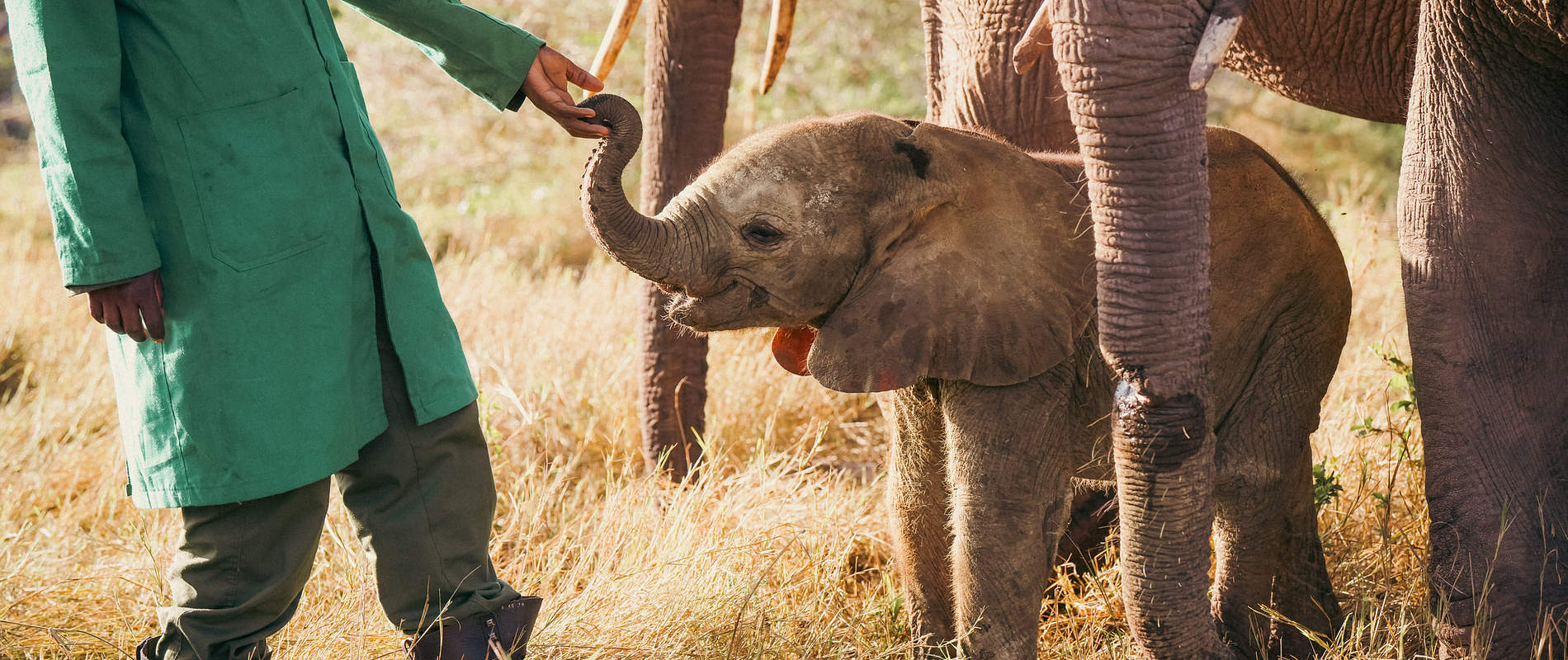Three months ago, the lush paradise of Kibwezi Forest in Kenya witnessed a truly extraordinary event – the birth of a baby elephant, a cause for celebration not just for its significance but for the miraculous nature of its arrival. This little calf was not just another addition to the forest’s thriving ecosystem; it represented a beacon of hope and a monumental success for the conservation efforts in the region. Born to the Umani orphan herd, this was the first wild-born offspring from elephants that were once themselves orphans, marking a remarkable milestone in wildlife conservation.

The Kibwezi Forest, a verdant sanctuary rich in biodiversity, has become a haven for elephants that were rescued and rehabilitated after losing their families, typically to poaching or human-wildlife conflict. The Umani Springs Reintegration Unit, nestled within this forest, is part of a broader initiative by conservationists to provide these orphaned elephants with a safe environment where they can grow, learn, and eventually reintegrate into wild herds.

The birth of this calf is particularly significant because it demonstrates the success of these reintegration efforts. For the first time, an elephant that was once orphaned and taken in by humans has given birth in the wild – a testament to the resilience of these majestic creatures and the dedication of conservationists who work tirelessly to protect them.
The calf’s mother, herself rescued several years ago as a traumatized orphan, has grown into a strong, healthy adult under the care of the sanctuary staff. Her ability to conceive and raise a calf in the wild is proof that with the right support, elephants can recover from the loss and trauma of poaching and lead normal, reproductive lives in their natural habitat.

This joyous occasion was celebrated not only within the confines of the sanctuary but resonated throughout the global conservation community. Photos and videos of the playful calf frolicking under the watchful eyes of its mother and other herd members were shared widely, bringing attention to the success story unfolding in Kibwezi Forest.

The event also serves as a poignant reminder of the ongoing challenges faced by elephants in Kenya and across Africa. Poaching remains a grave threat, driven by the illegal ivory trade, and habitat loss due to expanding human settlements continues to pressure wildlife populations. Yet, the birth of this calf offers tangible proof that concerted conservation efforts can yield positive outcomes.

Moving forward, the caretakers at Umani Springs are optimistic about the future. They hope that this birth will be the first of many and that the herd will continue to thrive and expand, serving as a cornerstone of a growing wild population in Kibwezi Forest. This success underscores the importance of wildlife sanctuaries and rehabilitation programs in the broader context of conservation and their role in sustaining the populations of endangered species.

In essence, the birth of this elephant calf is not just a victory for the Umani herd or the Kibwezi Forest; it is a victory for global conservation efforts. It renews hope for the future of elephants in Africa and symbolizes a triumph of life and resilience over the adversities posed by human actions. As the forest continues to buzz with the news of its newest inhabitant, there is a renewed commitment to ensuring that this sanctuary remains a safe haven for elephants, nurturing many more generations to come.




